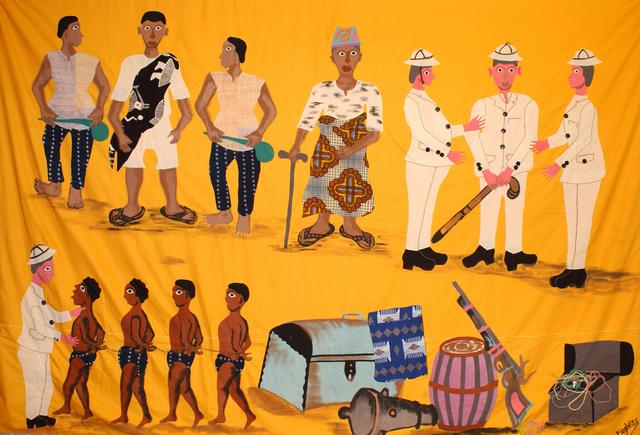23 agosto: Giornata internazionale di commemorazione della tratta degli schiavi e della sua abolizione

Il 23 agosto si celebra in tutto il mondo la Giornata internazionale di commemorazione della tratta degli schiavi e della sua abolizione, allo scopo di imprimere il ricordo di tale tragedia nella memoria di tutte le popolazioni. In linea con gli obiettivi del progetto interculturale dell'UNESCO, “La Rotta degli Schiavi”, la Giornata costituisce un'opportunità per la considerazione collettiva delle cause storiche, dei metodi e delle conseguenze di tale tragedia nonché per un'analisi delle interazioni a cui questa ha dato origine tra Africa, Europa, Americhe e Caraibi.
La circolare CL/3494 del 29 luglio 1998 del Direttore Generale dell'UNESCO invita i Ministri della Cultura di tutti gli Stati membri a organizzare, il 23 agosto di ogni anno, una serie di eventi al fine di celebrare questa ricorrenza, con il coinvolgimento dell'intera popolazione e, in particolare, di giovani, educatori, artisti e intellettuali.
La data è stata scelta a ricordo della notte tra il 22 e il 23 agosto 1791 che ha visto, a Santo Domingo, l'inizio delle rivolte che avrebbero poi giocato un ruolo cruciale nell'abolizione della tratta degli schiavi attraverso l'Oceano atlantico.
In occasione delle celebrazioni per il 2013 di tale Giornata, il Direttore generale dell'UNESCO, Irina Bokova, ha presentato il seguente messaggio:
Through their struggles, their desire for dignity and freedom, slaves contributed to the universality of human rights. We must teach the names of the heroes of this story, because they are the heroes of all humankind.
In paying tribute, on 23 August each year, to the women and men who fought this oppression, UNESCO wishes to foster reflection and debate on a tragedy that has left its mark on the world as it is today.
Under the Slave Route Project, UNESCO aims to reveal the extent and consequences of this human tragedy and to portray the wealth of the cultural traditions that African peoples have forged in the face of adversity – in art, music, dance and culture in its broader sense. This year, on the eve of the twentieth anniversary of the Slave Route Project, I designated as a UNESCO Artist for Peace Mr Marcus Miller, who will undertake the mission of promoting the UNESCO Slave Route Project and conveying its message of respect through music. These endeavours will contribute to efforts for the Decade for People of African Descent (2013-2022), proclaimed by the United Nations in 2012.
The slave trade is not merely a thing of the past: it is our history and it has shaped the face of many modern societies, creating indissoluble ties between peoples and continents, and irreversibly transforming the destiny, economy and culture of nations. Studying this history is tantamount to paying tribute to freedom fighters and to acknowledging their unique contributions to the affirmation of universal human rights. They have set an example for us to continue the struggle for freedom, against racial prejudice inherited from the past and against new forms of slavery that subsist to this day and affect some 21 million people.
Today, I invite all governments, civil society organizations and public and private partners to redouble their efforts to transmit this history. May it be a source of respect and a universal call for freedom for future generations.
On this Day of Commemoration, UNESCO invites people around the world to remember, to reflect on the consequences of the past on our present, on the new requirements of living together in our multicultural societies and on the fight against contemporary forms of slavery of which millions of human beings are still victims.

